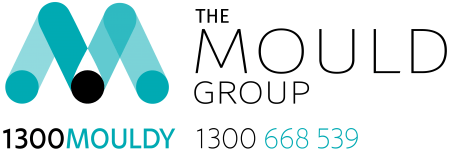Understanding Mould Testing in Brisbane Homes

Understanding Mould Testing in Brisbane Homes Today
Brisbane’s climate, known for its humidity and heavy rainfall, provides the perfect environment for mould growth. Mould is a common issue in homes across the region, but not all mould is easy to see or detect. This is why professional mould testing is essential. It allows homeowners to identify hidden mould problems before they become a serious health risk or cause extensive damage.
Why Mould Testing Is Necessary in Brisbane
Mould can thrive in warm, moist environments, making Brisbane’s climate ideal for its growth. While visible mould on walls or ceilings is a clear indicator of a problem, many mould infestations go unnoticed. Mould often grows in hidden areas, such as behind walls, under floors, or in the roof space. These areas can stay damp for long periods, making them perfect for mould to develop without being easily detected.
Professional mould testing is critical because it identifies these hidden mould problems. It goes beyond visible signs and uncovers mould growth that could be affecting the indoor air quality and the health of residents.
What Does Mould Testing Involve?
Mould testing is a comprehensive process that requires the expertise of professionals. At The Mould Group, we follow a detailed testing procedure to ensure that all mould in the home is identified and correctly assessed.
Our mould testing process includes:
- Initial Inspection: We conduct a thorough visual inspection of your home. This involves checking for signs of moisture, water damage, and visible mould growth.
- Moisture Detection: Using advanced tools, we measure moisture levels in walls, ceilings, and floors. High moisture levels can indicate areas where mould may be growing.
- Air Sampling: Air samples are taken from different areas of your home to detect mould spores in the air. These samples are sent to a laboratory for analysis, where the concentration of mould spores and their types are identified.
- Surface Sampling: In some cases, surface samples are collected from areas where mould growth is suspected. These samples help determine the type and extent of mould growth.
- Detailed Report: After testing is complete, we provide you with a detailed report. This report outlines the findings, including any mould identified, the spore counts, and recommendations for remediation.
The Importance of Air and Surface Sampling
Many homeowners assume that mould can be identified simply by sight or smell, but this is not always the case. Air and surface sampling are crucial parts of mould testing because they help detect mould that may not be visible.
- Air sampling measures the concentration of mould spores in the air. Even if there’s no visible mould, high spore counts can indicate a hidden problem. This is particularly important in homes where residents experience allergic reactions or respiratory symptoms but can’t see the source of the issue.
- Surface sampling involves taking samples from areas that may have moisture or hidden mould. This helps confirm whether a particular area is affected and what type of mould is present.
Both air and surface sampling provide a clear picture of the mould situation in your home, allowing you to take action based on reliable data.
Health Risks Linked to Mould Exposure
Mould exposure can cause a wide range of health problems, especially for people with allergies, asthma, or weakened immune systems. The most common symptoms include:
- Allergic reactions: Sneezing, coughing, and itchy eyes.
- Respiratory issues: Shortness of breath, wheezing, and chest tightness.
- Asthma flare-ups: For those with asthma, mould can trigger attacks and worsen symptoms.
- Skin irritation: Rashes and itchiness.
In more severe cases, prolonged mould exposure can lead to serious lung infections. Children, the elderly, and individuals with existing respiratory conditions are particularly vulnerable to the effects of mould.
Given Brisbane’s humid climate, these health risks are magnified. Homes with undetected mould problems can expose residents to mould spores daily, worsening these conditions over time. This is why regular mould testing is so important, particularly in a city like Brisbane where the conditions for mould growth are ever-present.
When Should You Consider Mould Testing?
There are several key times when you should consider mould testing in your Brisbane home:
- After Flooding or Water Damage: Any significant water event can lead to mould growth, even after surfaces appear dry.
- If You Notice a Musty Smell: A musty smell is often an indication of hidden mould.
- When Residents Have Unexplained Health Symptoms: If anyone in the home is experiencing unexplained allergic reactions or respiratory issues, it could be due to mould exposure.
- In Older Homes or Properties with Poor Ventilation: Homes with inadequate ventilation or older properties that have not been maintained are more likely to have hidden moisture and mould problems.
Professional vs. DIY Mould Testing
While there are DIY mould testing kits available, these are often unreliable and limited in their scope. They typically provide basic results that may not give a full picture of the mould problem. DIY kits also lack the ability to measure airborne spores accurately or detect hidden mould in walls or ceilings.
Professional mould testing, on the other hand, offers:
- Accurate identification of mould types and levels.
- Comprehensive testing that includes air and surface sampling.
- Expert analysis from laboratories, ensuring precise results.
At The Mould Group, our professional testing goes beyond simple detection. We provide detailed reports that help you understand the severity of the mould issue and recommend the best course of action for removal.
Why Mould Testing is Essential for Brisbane Homes
Mould growth is a common issue in Brisbane due to its climate, but with professional testing, it doesn’t have to be a major problem. Mould testing allows you to identify hidden issues before they affect your home’s air quality and your health. With The Mould Group, you can ensure your home is safe, mould-free, and protected from the risks of hidden mould.
Contact us today to schedule a mould inspection and keep your home healthy.
See our article on The Health Risks Of Living With Mould In Brisbane

